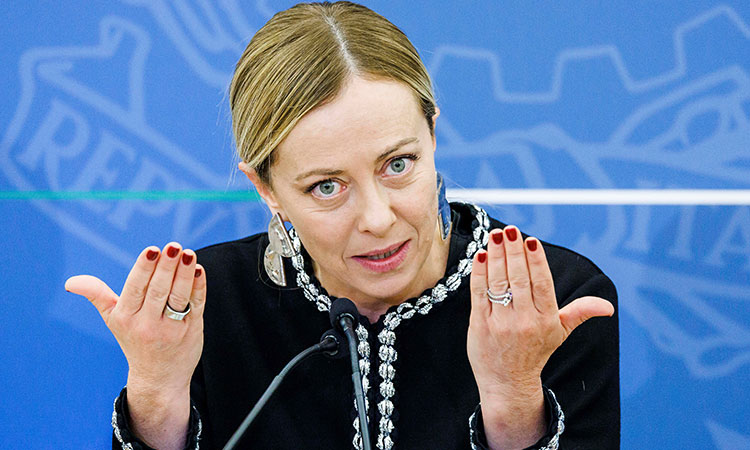Spain shows Europe’s right where it has gone wrong

Giorgia Meloni
Pankaj Mishra, Tribune News Service
Ambiguous election results may have left Spain facing months of political uncertainty. But the vote delivered a clear message to the rest of Europe. Ahead of last Sunday’s polls, Spain’s Vox party — sworn enemy of renewable energy, immigrants, gender equality, and diversity — was savoring its newfound power, closing bike lanes and banning Pride flags from public buildings in the Spanish towns it runs together with the center-right People’s Party.
Moreover, Vox had received high-profile support from its European partners. Italian Prime Minister Giorgia Meloni, Polish Prime Minister Mateusz Morawiecki, and Hungarian Prime Minister Viktor Orban all hoped that a strong showing by their fellow travellers in the European Union’s fourth-biggest country would help them dominate the Council of the European Union and impose the priorities of Europhobes and Euroskeptics on the European Commission.
Despite such prominent backing, though, Vox lost more than one-third of the seats it had won in 2019; it now seems unlikely to help the PP form a government. That means Spain will not, at least not until its next elections, join the alarmingly long list of European countries run by governments influenced by far-right parties and EU-baiters.
European leaders can allow themselves some deep sighs of relief. While a prolonged deadlock in Spain, presently rotational president of the EU, may affect the bloc’s functioning, at least far-rightists won’t be able to stymie the EU’s ambitious projects on the environment and energy.
More importantly, the dismal failure of Vox is likely to restore some sobriety and decency to European politics. Center-right leaders will hopefully now be warier of adopting the rhetoric and tone of macho conspiracy theorists.
Certainly, German opposition leader Friedrich Merz ought to take note of Vox’s stumbles. His party, the Christian Democratic Union (CDU), has struggled to capitalise on voter discontent with Chancellor Olaf Scholz’s coalition government. Instead, the neo-fascist Alternative for Germany (AfD) party is surging in the polls.
A worried Merz recently started adopting the AfD’s rhetoric, accusing Ukrainian refugees of indulging in “social tourism” and referring to young Germans of immigrant origins as “little pashas.” Last week, he shocked his own party when he said that he was open to working with the AfD — remarks he has now disowned.
The state of Britain under a radicalised Tory party should already have been sufficient warning to center-rightists across Europe. The Tories, a once respectable political formation, borrowed generously from lunatic fringe parties such as Nigel Farage’s UK. Independence Party in hopes of winning over their supporters. The result was Brexit — a calamitous act of national self-harm that won’t and can’t be redeemed for a long time.
In addition, the Tory party ended up committing political hara-kiri, purging its most competent leaders and elevating unscrupulous adventurers and bunglers such as Boris Johnson and Liz Truss to high office. Utterly spent intellectually and morally, it now tries to excite voters by trying to send asylum-seekers to Rwanda and stoking panic about transgender people.
None of this is working. The only question about the next elections in Britain is how big a majority the center-left Labour party will command.
Citizens across Europe are understandably exhausted and demoralized after some very hard years. Months of private anguish and uncertainty during the pandemic, followed by an uneven economic recovery, the seemingly endless war in Ukraine and extreme weather events — eruptions of the climate crisis — have exacted a high psychological and emotional toll. Political parties must surely acknowledge and address the frustration and anger an ordeal such as this naturally engenders. They should offer visions of a better future and find ways of harnessing the great talent and creative energy, especially of young people, in their societies.







